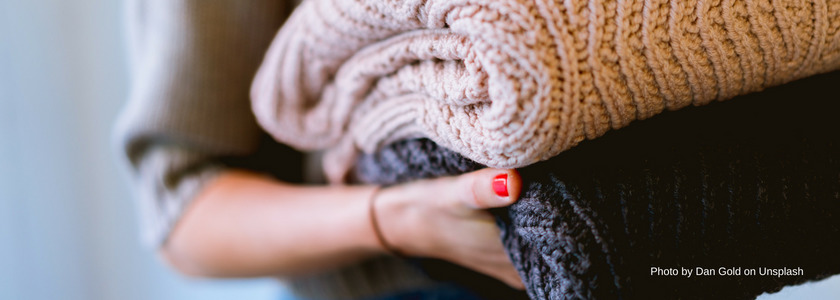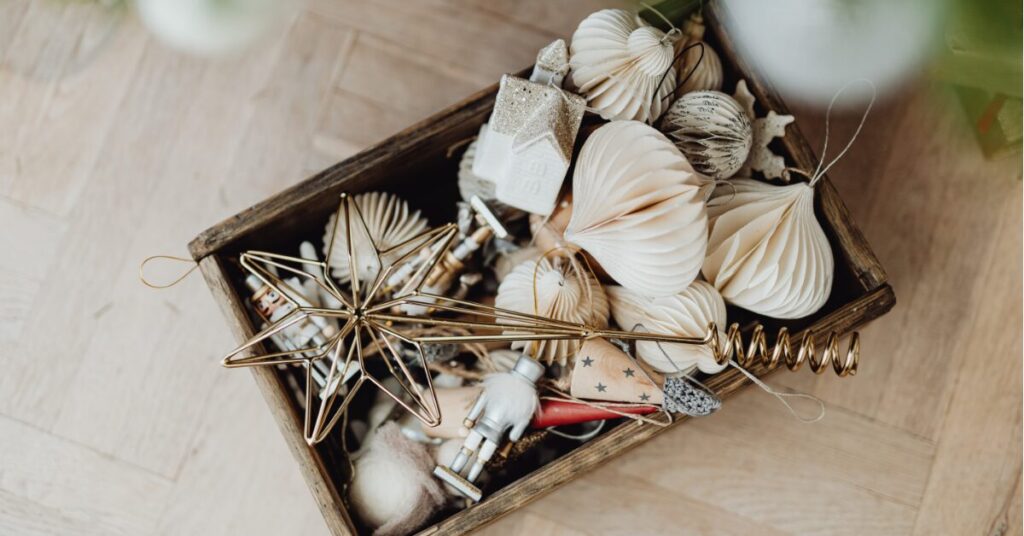Five Holiday Projects To Do Right Now For a Cozy, Organized Home

As the year winds down and the holiday season gears up, our homes become the heart of warmth, celebration, and gathering. Before the whirlwind officially begins, take a moment to set yourself up for a stress-free and truly cozy season. An organized home is a happy home, especially when you’re hosting!
Here are five essential organizing projects you can tackle right now to ensure a cozy, organized, and welcoming home for the holidays:
1. Holiday Decor Prep: The Inspection and Inventory
The first step to a beautiful holiday display is making sure your decorations are ready to go before they leave the box. Instead of waiting until the last minute to unbox your festive items, take an hour now for a proper inspection.
- Inspect for Wear: As you’re setting up your holiday decor, take the time to inspect for chips, broken pieces, missing lights, or excessive wear. Toss anything that’s past its prime to save yourself the frustration of decorating with damaged goods.
- Organize for Easy Setup: Store similar items together—all tree ornaments in one bin, outdoor lights in another, and so on. Label the bins clearly so next year’s setup is a breeze.

2. Gifting Station: Your Wrapping Headquarters
The secret to organized gift-giving is having a dedicated space for everything related to the process. Stop chasing rogue rolls of wrapping paper and scattered tags!
- Create a Central Hub: Designate one corner of a closet, a drawer, or a decorative bin to store all your wrapping essentials: paper, scissors, tape, tags, ribbons, and gift bags.
- Keep it Tidy: As you purchase or make gifts, place them in this station until they are ready to be wrapped. This prevents gifts from accumulating in various hiding spots around the house, ensuring no present is forgotten. (Yes, it’s happened to me!)
3. Dining Room Declutter: Setting the Stage for Feasts
Your dining room will be the center of attention for holiday gatherings, from Thanksgiving dinner to Christmas brunch. Give it the love it deserves by clearing out the everyday clutter.
- Clear the Surface: Remove everything that doesn’t belong on the dining table and sideboard. This makes it instantly available for setting a festive tablescape.
- Organize Serving Ware: Check your china cabinet, drawers, and buffets. Organize your serving dishes, platters, and cutlery. Place all the essentials you’ll need for a large meal in one easy-to-access spot.

4. Food Storage and Freezer Organization: Prepare for Holiday Cooking
From preparing meals ahead of time to storing leftovers, the holiday season puts a huge demand on your kitchen’s storage. A clean, organized freezer and pantry will be your best friend.
- Clean and Inventory the Freezer: Toss anything expired or mystery items you can’t identify. Take note of what you have so you don’t over-purchase ingredients. This creates vital space for your holiday baking supplies and pre-made meals.
- Streamline Food Storage Containers: Match up all your food storage lids and containers. Get rid of the mismatched or lidless pieces. Having a functional set of containers will make packing up those inevitable holiday leftovers simple and efficient.
5. Coat Closet Cleanup: Welcoming Winter Guests
Your guests’ first interaction with your home is often the entryway or coat closet. Make a great first impression by clearing out the winter coat and boot chaos before your visitors arrive.
- Edit and Simplify: Remove any seasonal items that don’t belong—summer gear, forgotten sports equipment, or out-of-season shoes.
- Optimize Space: Temporarily move your own rarely used coats to another closet to free up prime real estate. Hang a few extra empty hangers and ensure there is clear floor space for boots and bags. A tidy, functional coat closet is the ultimate gesture of a prepared host.
Start with just one of these five projects today, and you’ll find yourself gliding into the holiday season with less stress and a much cozier, more organized home!

